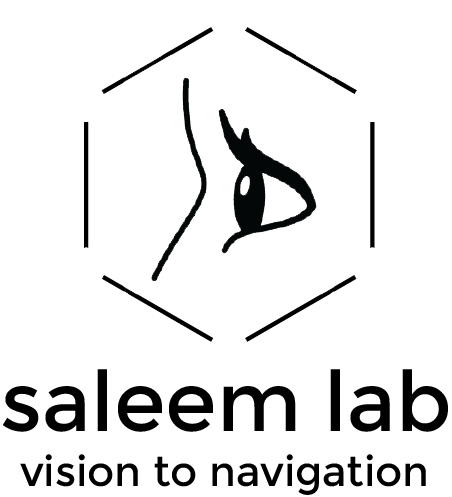The Challenge
We constantly move from one point to another or navigate in the world: in a room, building or around a city. While navigating, we look around to understand the environment, and our position within it. We use vision naturally and effortlessly to navigate in the world. "How does the brain use visual images observed by the eyes for natural functions such as navigation?" We are a systems neuroscience lab investigating such questions.
Methods
The lab uses a combination of experimental and computational approaches to investigate brain function.
The main experimental techniques include: large-scale extracellular electrophysiology including acute and chronic neuropixel recordings, two-photon imaging, virtual and augmented reality, rodent behaviour and optogenetic manipulation of neural activity.
Computational techniques include: decoding activity from large populations of neurons, latent space representations of information, machine learning approaches to neural data analyses and systems level models of neural systems.
Environment
Led by Prof. Aman Saleem, the lab is based in the UCL Institute of Behavioural Neuroscience, which has a very dynamic and collaborative environment for neuroscience research. The institute hosts 5 groups with distinct but overlapping research interests. The centre has a mix of researchers from diverse backgrounds, with around 9 postdoctoral researchers, 10 PhD students and a steady stream of Masters and rotation students.
The institute is part of the UCL neuroscience domain, which is one of the epicentres of neuroscience research in the world. We benefit from a large number of researchers across various topics, including cellular, systems, cognitive, computational and theoretical neuroscience.
Vacancies
Applications are now open for two new PhD positions in my laboratory,
Computational Neuroscience / NeuroAI PhD position, supervised by Aman Saleem and Caswell Barry
https://www.findaphd.com/phds/project/computational-neuroscience-neuroai-phd-at-ucl/?p184367
Systems Neuroscience PhD position, supervised by Aman Saleem and Sarah Ruediger
https://www.findaphd.com/phds/project/systems-neuroscience-phd-at-ucl/?p184369
If you are interested in postdoctoral positions, please email Aman.
contact
Address: UCL Institute of Behavioural Neuroscience, Department of Experimental Psychology, 26 Bedford Way, WC1H 0AP, London, UK
(Room 507 - Aman's office; Rooms 509 & 512 - PhD and Postdoc offices)
Email: aman.saleem [AT] ucl.ac.uk
